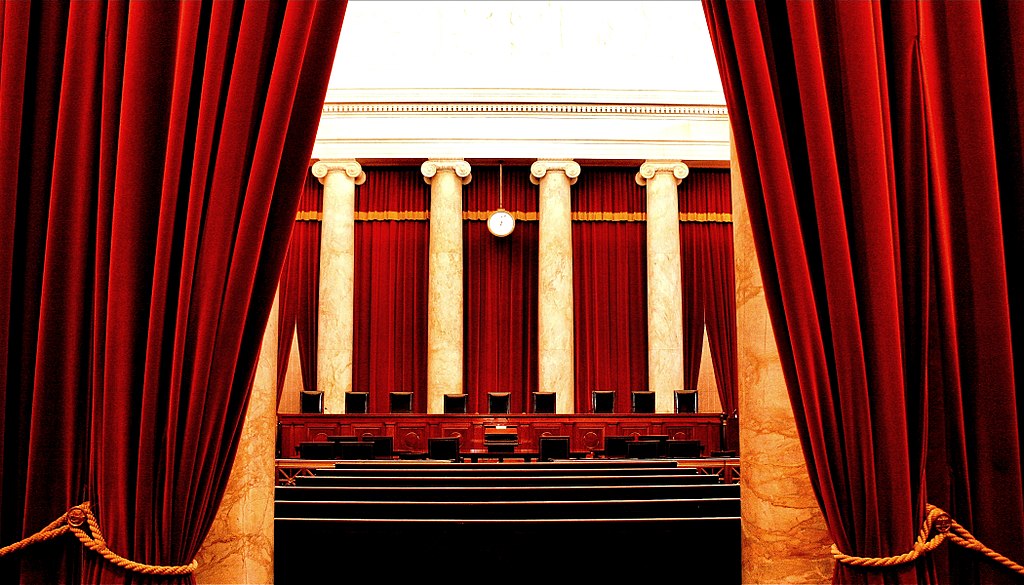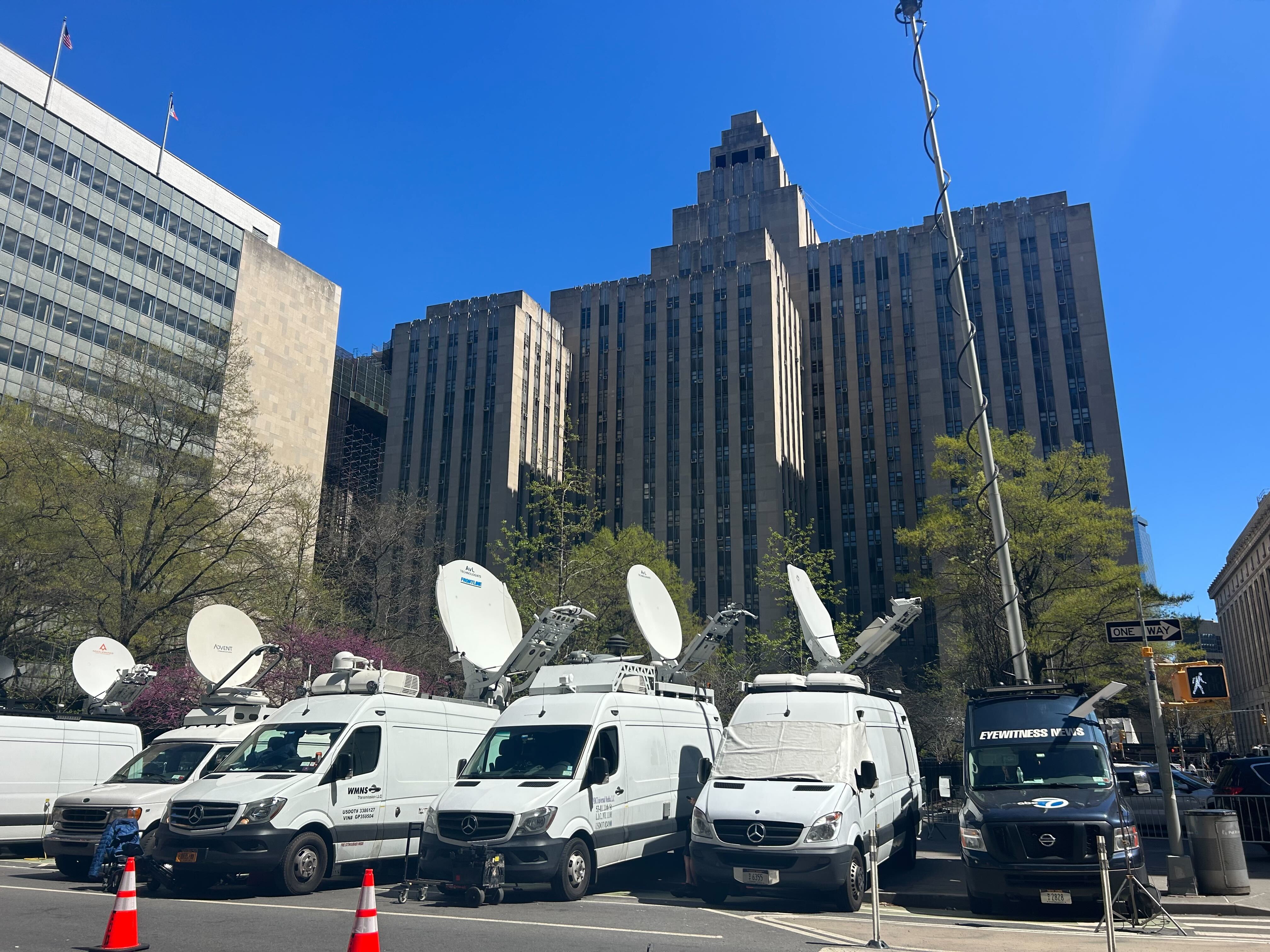How Courts Can Protect Democracy From Abuse of Emergency Powers
The Supreme Court should shift its approach to emergency powers (defined broadly to include national security) to take into account the role they can play in undermining democracy.

Published by The Lawfare Institute
in Cooperation With

Elected leaders establishing autocracies often use emergencies, real or imagined, to justify measures that undermine democracy. Justice Robert Jackson’s opinion in the Youngstown case, after discussing the then-recent experience of Hitler using emergency powers to subjugate democracy in Nazi Germany, said that “emergency powers ... tend to kindle emergencies,” which provide “a ready pretext for usurpation.” The Supreme Court has not taken concerns about democracy loss seriously in its separation of powers opinion since then, even though Hungary’s Viktor Orbán and Turkey’s Recep Tayyip Erdoğan both used emergency powers as tools to subjugate democracies. Indeed, when Donald Trump emulated Orbán in seeking to treat immigration as a national security threat to help stoke hatred and division, the Supreme Court refused to scrutinize his fake national security claims.
In a recent book, “The Specter of Dictatorship: Judicial Enabling of Presidential Power,” I argue that the Supreme Court should shift its approach to emergency powers (defined broadly to include national security) to take into account the role they can play in undermining democracy. A recent Lawfare review focused primarily on the book’s argument that the unitary executive creates a pathway to autocracy, but did not discuss the book’s main ideas regarding national security.
The experience of democratic decline in the United States and abroad suggests that the courts must take the possibility of democracy loss seriously in separation of powers cases. The extensive efforts elected autocrats have taken to capture courts suggest that judges can play an important role in legitimizing or delegitimizing moves that undermine democracy. Their rulings can help political movements resist slides to autocracy and occasionally check autocracy directly, as the Colombian Constitutional Court did when it held that the autocratic Álvaro Uribe could not run for a third term.
Since the head of state almost always leads successful efforts to destroy democracies, courts must take into account the possibility of current or future presidential bad faith in all cases implicating presidential power. The court did this not only in Youngstown but also in Ex Parte Milligan, when the court recognized that “wicked men, ambitious of power, with hatred of liberty and law” could become president. But since Youngstown, the court has been concerned primarily with making sure that a good-faith president has all the power needed to protect national security.
The modern court reined in President George W. Bush’s direct assault on liberty in Guantanamo but does not consider that powers it bestows on the president could be used to unravel democracy in the future. It held that courts may review habeas corpus petitions from Guantanamo detainees in Rasul v. Bush and Boumediene v. Bush, required some due process for detainees challenging their status as enemy combatants in Hamdi v. Rumsfeld, and invalidated the system of military commissions that Bush unilaterally created in Hamdan v. Rumsfeld. Thus the court protected, to some degree, detainees’ interest in fair processes. At the same time, the court allowed the president to seize power to detain “enemy combatants” in spite of the Non-Detention Act, which prevents executive detention absent an act of Congress—a response to the internment of Japanese Americans during World War II. And none of these cases speak, as Youngstown did, to the way executive power can unravel democracies if precedent authorizes implied seizure of emergency powers. In Hamdan, Justice Stephen Breyer stated that “Congress has not issued the Executive a ‘blank check.’” This statement, however, does not address the possibility of democracy loss but, instead, asserts that consultation with Congress can bolster national security.
In my book I conceptualize national security as defense of democratic sovereignty. The court frequently invokes national security to justify extraordinary deference to the president without ever defining the term. I agree with the prevailing view that 9/11 exemplifies a grave threat to national security but seek to identify a rationale for that view (and thereby define the concept of “national security” itself). I note that the sheer number of deaths cannot serve as an explanation, since air pollution, car accidents and ordinary murders kill far more people annually. Nor are mass shootings treated as implicating national security, suggesting that horrific salient violence does not always qualify as a national security threat.
The term “national security” suggests a focus on protecting the nation as an entity, not merely individuals’ sense of security. Since the United States is a democratic country, one might say that the nation remains secure as long as threats to the People’s sovereignty over the United States remain at bay.
From that perspective, it becomes apparent that 9/11 threatens our national security, because we might undermine our own democracy in response. The terrorists can kill people, but they do not have the power to occupy our country. Instead, these attacks have eroded democratic norms, leading people to accept more surveillance and routine searches without warrants in public venues. And they have provoked fears, which President Trump used to spread panic, hatred, and division, leading to a prolonged assault on the rule of law and then an insurrection.
Since national security claims can be abused to undermine democracy, the courts must at least check fake national security claims, something the Supreme Court failed to do in Trump v. Hawaii. Courts should engage in arbitrary and capricious review of the rationale for presidential decisions to make sure that a president does not make up facts or exaggerate their significance to provide a pretext for abuses. But courts should calibrate the standard of review to avoid undue interference with targeted efforts to deal with real threats under conditions of uncertainty. Judges should bear in mind that Congress is very likely to correct serious judicial errors in checking a president too aggressively in this realm. But when the court implies presidential powers and fails to scrutinize their exercise, it invites the executive branch to assume even greater power and to abuse the power that it has.
Instead of abdicating all judgment in reviewing presidential invocation of statutory emergency powers, the courts should generally employ a construction of the term “emergency” that matches its plain meaning as understood by ordinary people. Common understandings of the term “emergency” require that an emergency arise from a sudden new situation, create a serious risk, and require a quick response. If a court is not convinced that the circumstances before it meet that test (especially the quick response requirement), it should generally expect the president to seek legislative endorsement of his policy and not authorize the presidential use of emergency powers. The Turkish courts helped hasten the demise of Turkey’s democracy when they abandoned their tradition of reviewing the justification for use of emergency powers, allowing a response to a defeated coup to metastasize into a vast program to subjugate the political opposition. The Supreme Court should not continue down the dangerous path of declining to seriously review emergency powers claims.
The courts, however, often use justiciability doctrines to avoid considering challenges to presidential power (while often facilitating challenges to congressional power), especially when national security is implicated. The most obvious example involves war power cases, where an extraordinarily stingy approach to justiciability has helped facilitate the transfer of the war power from Congress to the president. While the war power cases may pose special difficulties in terms of getting orders obeyed, the courts should at a minimum lower justiciability barriers to claims that do not require courts to order the troops home, like those of property owners seeking economic damages. These cases offer opportunities to affirm that the Constitution vests the decision about whether to go to war in Congress, not the president. The threat that unconstrained presidential power poses to a democracy supports using the flexibility justiciability doctrine offers to lower barriers to cases seeking to rein in potentially problematic uses of presidential power.
Original intent shows that avoidance of “despotism” constituted one of the major goals of those who framed and ratified the Constitution, so originalist judges should support a democratic reorientation of separation of powers jurisprudence to help preserve our declining democracy. If the Supreme Court continues its practice of implying vast presidential powers to protect national security while creating doctrine limiting presidential accountability (such as executive privilege and presumptive immunity from suit), that would provide another reason to consider Supreme Court reform. A court that undermines democracy by loosening restraints on presidential power may do more harm than good.



